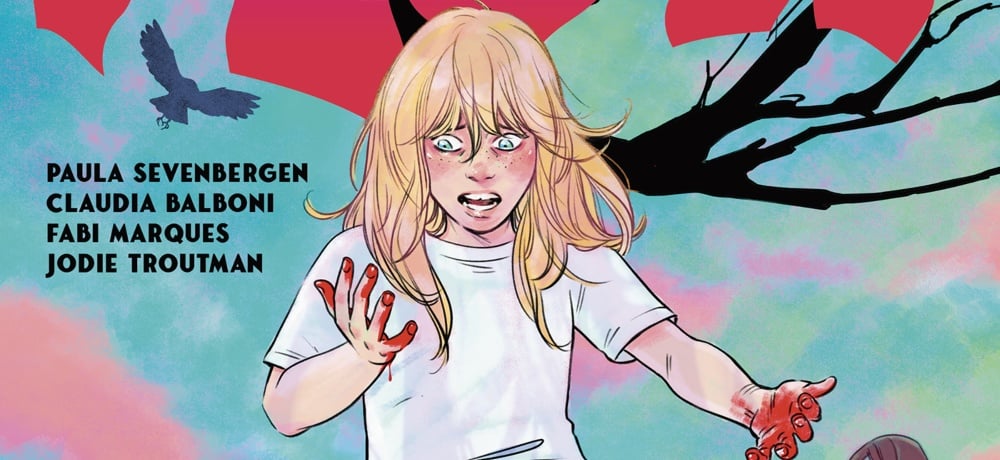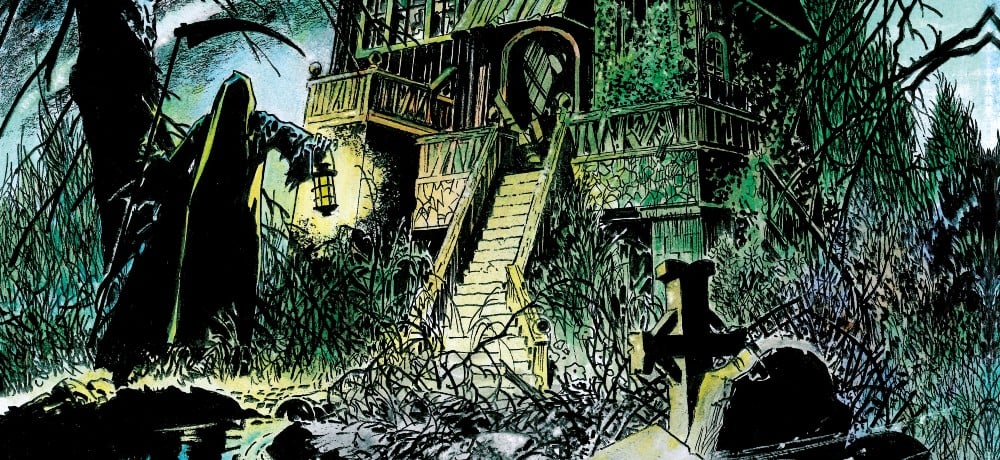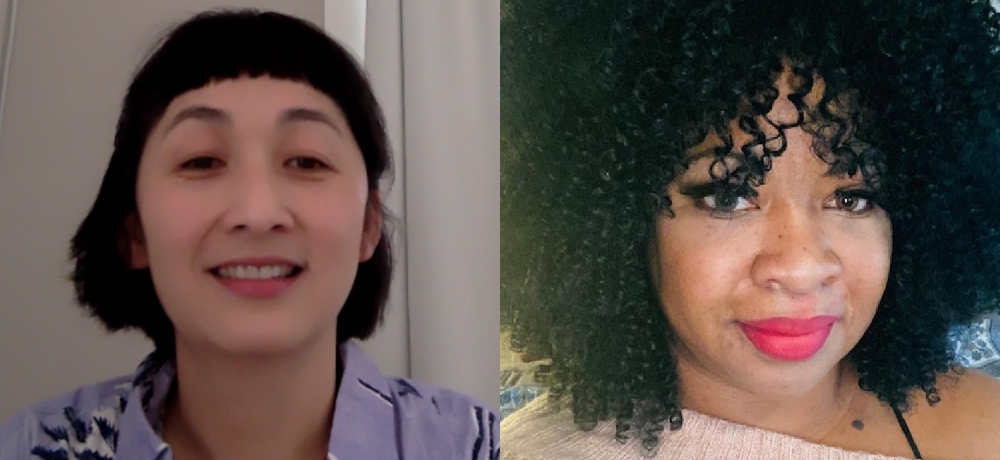






I first came across Thuc Nguyen and Nanea Taylor on Twitter, and after reading up on what they’ve been up to as of late, I was eager to speak to this screenwriting team who are working hard to make a name for themselves and get their script, The Stroke After Midnight, into the right hands so that it can become actualized on screen. The thing that immediately struck me about my conversation with Taylor and Nguyen is that within mere minutes of us chatting, I felt like I was speaking to two old friends that I had known for ages. Thoughtful, fiercely intelligent, and deeply passionate about change in an industry that often overlooks the stories they want to tell and the work they are doing, I feel confident in saying that both Nguyen and Taylor represent the future of the horror genre (and their script for The Stroke After Midnight is pretty damn great as well).
During my recent chat with this screenwriting duo, we discussed everything about how these women first connected on social media and how that led to them collaborating on The Stroke After Midnight, their approach to the project, and how they wanted to be respectful of how women and those who practice voodoo are portrayed by their words. Taylor and Nguyen also chatted about wanting to carve a path for themselves in Hollywood, and why the progress we’ve seen with this year’s Oscar nominations is good, but there is still work to be done in the industry.
So great to speak with you ladies, today. I just thought it was really interesting how the two of you came together, where the two of you became friends on Twitter and now you’re collaborating on script projects. Is that how this all started for you then? On social media?
Thuc Nguyen: Yes. What is it that they say? Work with people who you want to spend time with? I don't know if that's exactly what they say, but it's a version of that, and I've found that true, because I wanted to get Tay's input on things, but I wanted to get her paid, too. So we got into our deal with launching this project together, with both of our inputs, out into the world.
Were both of you solo writers prior to coming together to work on The Stroke After Midnight?
Nanea Taylor: Both of us were solo writers before, yes. I was excited when Thuc asked me to co-write this with her, because we met on Twitter and so we always checked in on each other on Twitter, and looked out for each other on Twitter, and reposted stuff. And if you don't know anything about Thuc, she's going to support you, and she's going to try to retweet your stuff to try to get it out there. She's all about promoting people and trying to help people, and so she's always been a really great cheerleader. And again, we kept in contact in the DMs to see how we were both doing in this writer's world, and I think we first bonded over the logline for this script, and then I saw the location was New Orleans.
I told her, “Listen, I don't know when you're going to make this, and how this is going to be made, but I will come on set, I will be the crafts girl. I will sweep the set floors, I will do whatever you need, because I need to see this made,” and we became fast friends. We started talking in DMs from that moment on, and over the year, we would just keep in contact, talking about our ideas of changing Hollywood to make sure that women who look like us are sitting in those writers rooms, are sitting in areas of power, to make sure that everyone gets a chance to see themselves on screen.
Thuc reached out to me, and said, “Hey, would you like to co-write this with me?” I hadn't read the script, but I know her, and so it was an immediate yes for me, because we had already established a friendship online and I wanted to work with her. I think we saw each other as human beings, and not these Twitter personas, or people who are out to get something from the other. We generally really are concerned about each other, and how things are going really in real life, so I was very honored that she even considered me as someone that she wanted to write the script with.
And that's how it all started. But yes, I was a solo writer. My favorite genre is sci-fi. And Thuc and I had the best time writing this script, and I think that when people see it, or read it, or when it gets made, they're going to see the fun part of it, and then the sisterly theme of it, because the way that Thuc and I work together is like we are sisters.
Without giving away too much, because we don't want to ruin anything for anybody out there, can you talk about this story of The Stroke After Midnight, and what made New Orleans the perfect backdrop?
Thuc Nguyen: So, what I had originally was like a trash pile [laughs], and when Tay touched it, it became a pile of gold. Like whenever people read this script, and they say, “I love this part, this part, and this part,” I'm like, “That's all Tay.” It's true. So, yes, it's a very selfish motive, because I want to spend time with her and other cool women. Also, I love the South, and I love New Orleans. Tay and I are both from the South, so it's a good jumping-off point to even shine a light more on women who aren't in New York and L.A., you know, that we don't often see involved in the movies that are being made and the stories that are being told.
The voodoo elements were also important to us. You can watch videos on voodoo practitioners, voodoo priestesses, and they'll always say, “Hollywood gets it wrong. You don't stick pins in dolls to curse people. You stick pins in where people need the attention—like, does your heart hurt? Then you stick the pin there. Does your kidney hurt? Stick the pin there.” We didn't want to just do the same thing everyone else does, because there are people who are going to be sitting down there, shaking their heads, and we'd rather them nod their heads because we’ve done something right.
Nanea Taylor: I spent a lot of time researching voodoo, because I didn't want anybody who's from voodoo practice saying, “They did this wrong,” and when they realized I wrote it, they say, “Oh, let's get her!” [laughs]. So, that was my first concern. The second concern was that voodoo is a religion, and people forget that it is a religion. It’s a sacred thing that often involves generational families passing along the knowledge from one practitioner to the next, and I wanted to make sure that was respected.
But Thuc is so correct. It's about healing and it's about light; it's not about darkness. Don't get me wrong, our script has a lot of darkness to it, and some goriness and blood, too, plus a lot of killing in different ways. But there’s light. And that comes from the cast. There are two women of color as the leads, and there is a mixed supporting cast of characters who support them on their goal. And the heart of the story is sisterhood and taking care of family. So, I think we did a really good job with all of that, and I really hope that when it's made and people see it, that the people who practice voodoo will feel like we did right by them, too.
Something else that I’m really proud of is how Thuc and I, when we wrote this, we gave the women in this story body autonomy. Yes, they're sexy and beautiful, but they have body autonomy. They know who they are, they know what they're worth. So that's one thing that I'm very, very proud of. I don't know if anyone else's hands, in a male writer’s hands, that they would have made sure that was a theme incorporated into this story.
Thuc Nguyen: I'm going to echo that because it's 100 percent true that there's been a huge legacy of dead hookers throughout the span of entertainment, and in the real world, too. We still see men who are cracking hooker jokes about women of color on Twitter, saying things like, "Yeah, there are more women of color who are hookers at the after parties at the Golden Globes than there are creatives," or whatever it was that he was implying. That's not funny because it causes us to be perceived a certain way, where we are oversexualized, we are more devalued, more dehumanized, and more disposable in some people's minds. So that's why we have to write things like this script to show the world that we know our worth. We know our value and each other's values and that's why we have to protect each other, and that the world needs to rally around and protect women of color as well.
I wanted to ask both of you about the Oscar nominations this year. I'm happy with most of them, but I am still mad about One Night in Miami. Beyond that, we are finally starting to see some strides, in terms of being recognized by the Academy. But ultimately, there’s still a long way to go until we see some real change from the top down in Hollywood.
Thuc Nguyen: What I do find interesting is that Emerald Fennell is nominated, because you could classify Promising Young Woman as a borderline thriller/horror. So it's rare for movies of that ilk to get a nod, because it's not a straight-up prestige drama. Yes, I think we have a long way to go in terms of the screenwriting and even the adaptive screenwriting category. I know Chloe Zhao was nominated for adapted screenplay, but we never see black women in those writing categories. We have never seen a woman of color nominated for best director, literally ever, because women of color have so few opportunities to even get stuff made, let alone get as far as to be in contention for these above-the-line awards nominations.
You know, Esquire came out with this big article, asking when Promising Young Woman will get its quote unquote Joker moment, and they point to Joker because a female lead gets to show her rage and revenge, so it can’t be sexist if we allow a white woman to show rage and revenge. My commentary on that is, when will women of color be allowed to also show our rage and to seek our revenge on screen? We want to be able to express this anger that we have in real life, because we are faced with more threats, more danger, and more disposability.
Nanea Taylor: And women of color, or women period, are not really allowed to fail up. You have men do these movies and they bomb. But then the next year, they give them another movie. They give them money. They give them a job. They sit them right on another movie set and they allow that person to fail up. But if a woman of color, or a woman, makes the same mistake, people are quick to say, “They don't know what they're doing and we can't ever give that woman any more money to ever produce another movie ever.” And although the Oscar nominations are more diverse now—I was very happy to see Steven Yeun and Chadwick Boseman nominated this year—but I'm just going to be honest, that's my limited knowledge right now of the Oscar nominations. Because until we write that Oscar script, I'm not paying attention to the Oscars.
So I see that it's a slow crawl to change. But my thoughts about when they add diversity is just who ultimately holds the power? You have to give the power to someone who is really truly fair and they want to see change all across the board. I don't trust it yet. So while we have received some nice buzz behind us for The Stroke After Midnight, the door is still very tightly closed for both of us because of the old guard.
And I'm not saying that white writers can't write people of color stories, either. What I am saying is give people of color a chance to write our own stories. Give us just the same amount of chances that you have given white males in this industry the chance to fail up. We all have some great stories in us and if you will allow us in the door, we could show you what we are and what we have and how we can change the world by what we have written.
Thuc Nguyen: And for Emerald Fennell, you could hold the door open for the rest of us. You got rage and revenge, let us also have rage and revenge. I think that is only fair. And to be honest, too, even in the diversity and inclusion world, you see so many people climbing the ladder and then throwing the ladder down so no one else can get back up, and it's an unfortunate reality of those who live in scarcity mode. I think we hear that saying of “share and share alike” because the more opportunities we create for everyone, the more opportunities we all end up having in the end. A lot of people don't think that way, because it's against that self-preservation mode we all have, but we all should be working together so that we can create opportunities for everyone.
---------
Go HERE to catch up on all of our Indie Horror Month features!